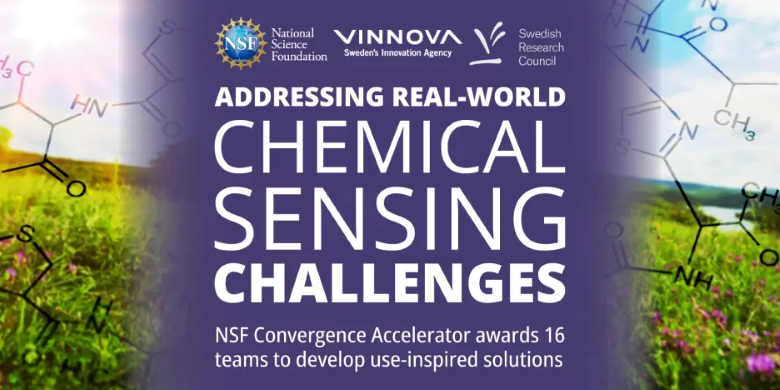The U.S. National Science Foundation is investing $10.4 million to develop innovative technologies and solutions to address a wide range of challenges related to chemical and biological sensing. Through this investment, 16 multidisciplinary teams have been selected for Phase 1 awards under the NSF Convergence Accelerator’s Track L: Real World Chemical Sensing Applications.
Track L also constitutes the first cooperative research activity between NSF and two Swedish government agencies advancing research and innovation—the Swedish Research Council (or Vetenskapsrådet, in Swedish) and Vinnova—following memoranda of understanding that the agencies signed in May 2023. Track L is the first cooperative research activity between the agencies in which the Swedish government will invest in Swedish researchers collaborating within one U.S.-based team.
The track builds upon a wealth of foundational knowledge and recent advances in chemical sensing, sensor technology, robotics, biomanufacturing, computational modeling, and olfaction to address challenges related to environmental quality, industrial agriculture, food safety, disease detection and diagnostics, personal care, substance use or misuse, and possible adversarial threats.
Air pollution-related illness costs an estimated $150 billion and is responsible for more than 100,000 premature deaths in the US per year, according to the National Weather Service.


